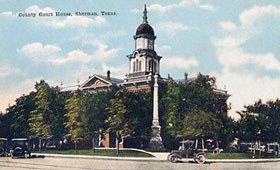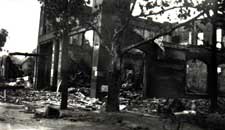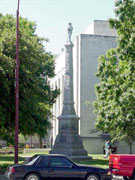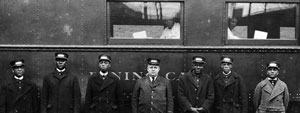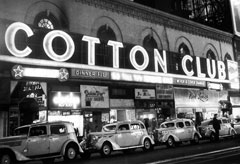 Depression and Hope (circa 1925–1940)
Depression and Hope (circa 1925–1940)
With a Sneak Preview
Usually we hear how the Great Migration and President Roosevelt’s ‘New Deal’ transformed American society and politics. Blacks left the South and the party of Lincoln, to move into cities and Democrat Party ranks. The full tapestry must, however, include the multi-sided struggle over U.S. society’s future, between:
- Legal activists seeking to roll back the “separate but equal” society which the U. S. Supreme Court approved in its Plessy v. Ferguson decision… (described in Cultural Rebirth and Reaction);
- Governmental policies, commercial practices, and personal efforts to promote separate and unequal development, such as segregated housing, whose effects persist to this day;
- Some labor groups working to break down racial barriers which weakened their ability to fight economic exploitation and stratification; and
- Deeply imbedded cultural practices—values, ideas, stories, sounds, beliefs—which form people’s “comfort zones” where we welcome, or resist, difference and change.
Among the stories are:
- The brilliant black doctor who was prosecuted for murder for defending his new home from a Detroit mob;
- The fight between the NAACP and the Communist Party, to defend nine black “Scottsboro Boys” from a legal lynching for rape charges brought by two white hobo women;
- The first successful black labor union, and attempts to build inter-racial unions, by leftist radicals ordinary dirt farmers, sometimes with and often despite government involvement;
- The spread of rich ‘African/American’ culture nationwide, outside its famous centers in Harlem and the South;
- A literary duel—or cultural brawl—for the U.S.’s beliefs and historical memory, starring bespectacled professors, hard-charging businessmen, romantic novelists, Jewish activists, crusading newshounds and conflict-ridden musicians; and
- The emergence of new voices, speaking for Latins and other peoples of color.
And as our documentary about one of the last major southern white assaults on its black community begins with a “Territory Band’s” Jazz music, it will probably end with the operatic soprano Marion Anderson’s Washington concert, forced outdoors by the Daughters of the American Revolution.
Depression and Hope asks if ‘Civil Rights means people deserve to be treated with respect because they’re being civil,’—not noisy, not messy, not loud, not sweaty, not difficult or low-class—or simply because they’re people.
Please support and send us your sounds, anecdotes, images and ideas for this program.

